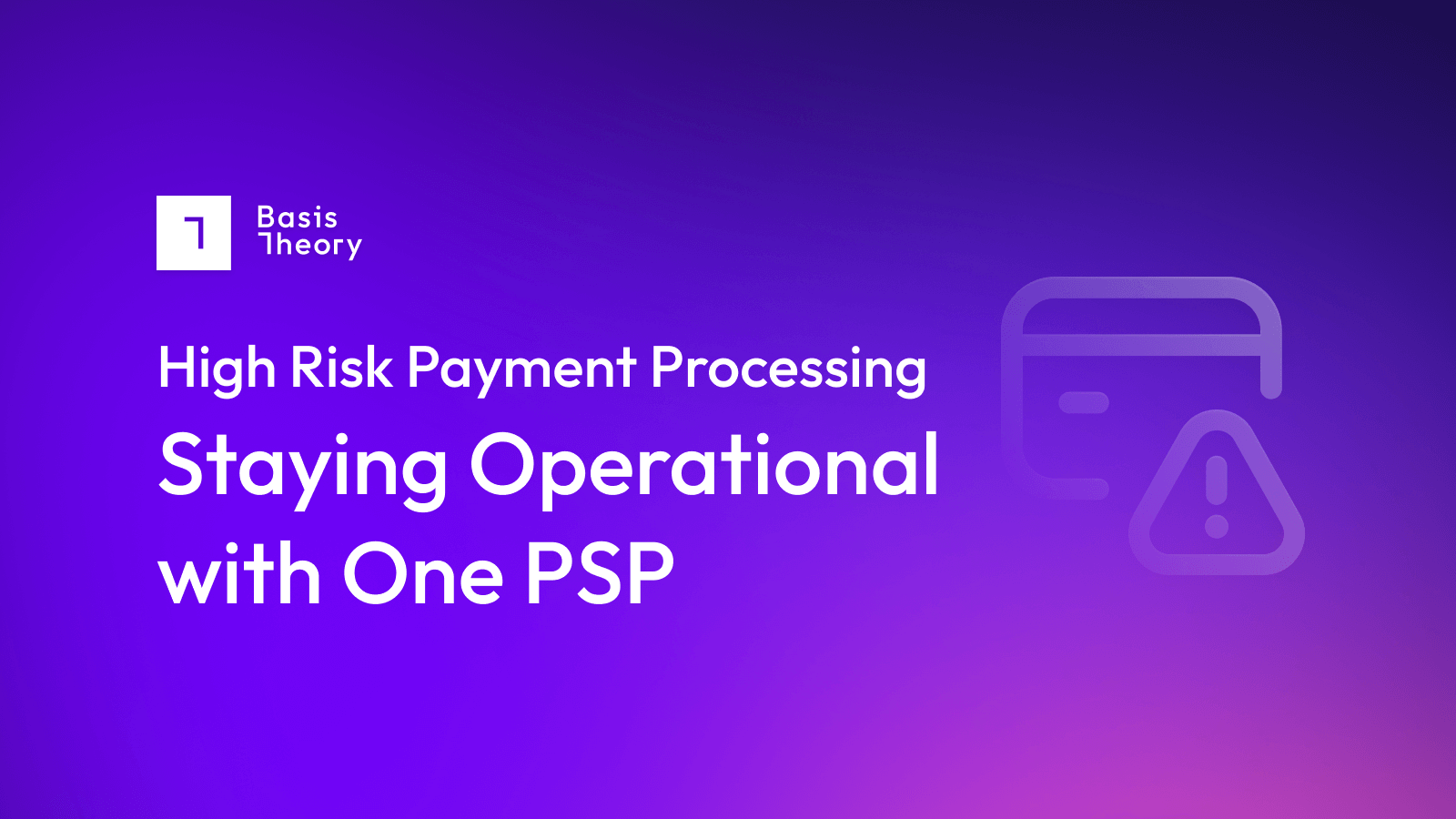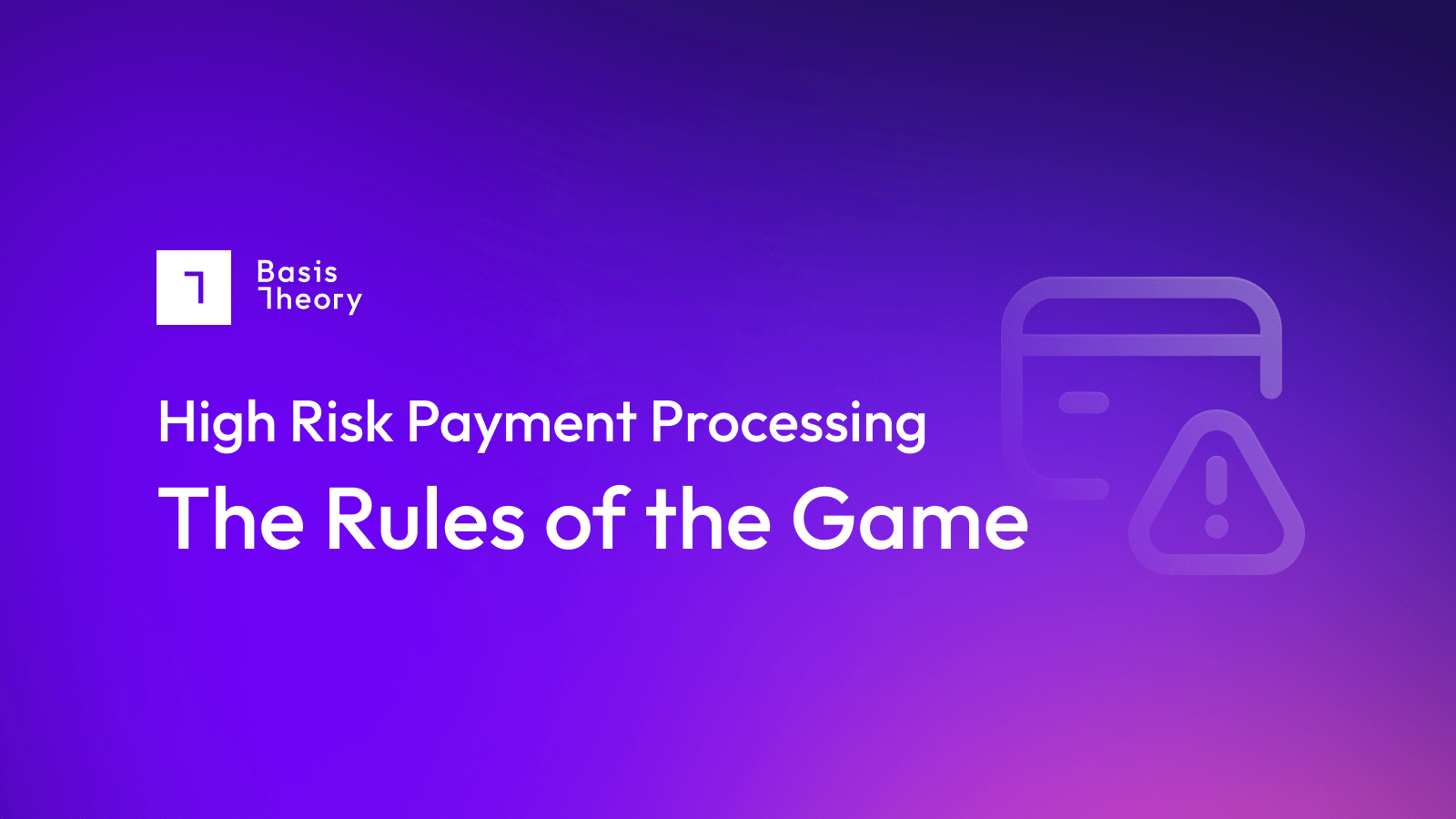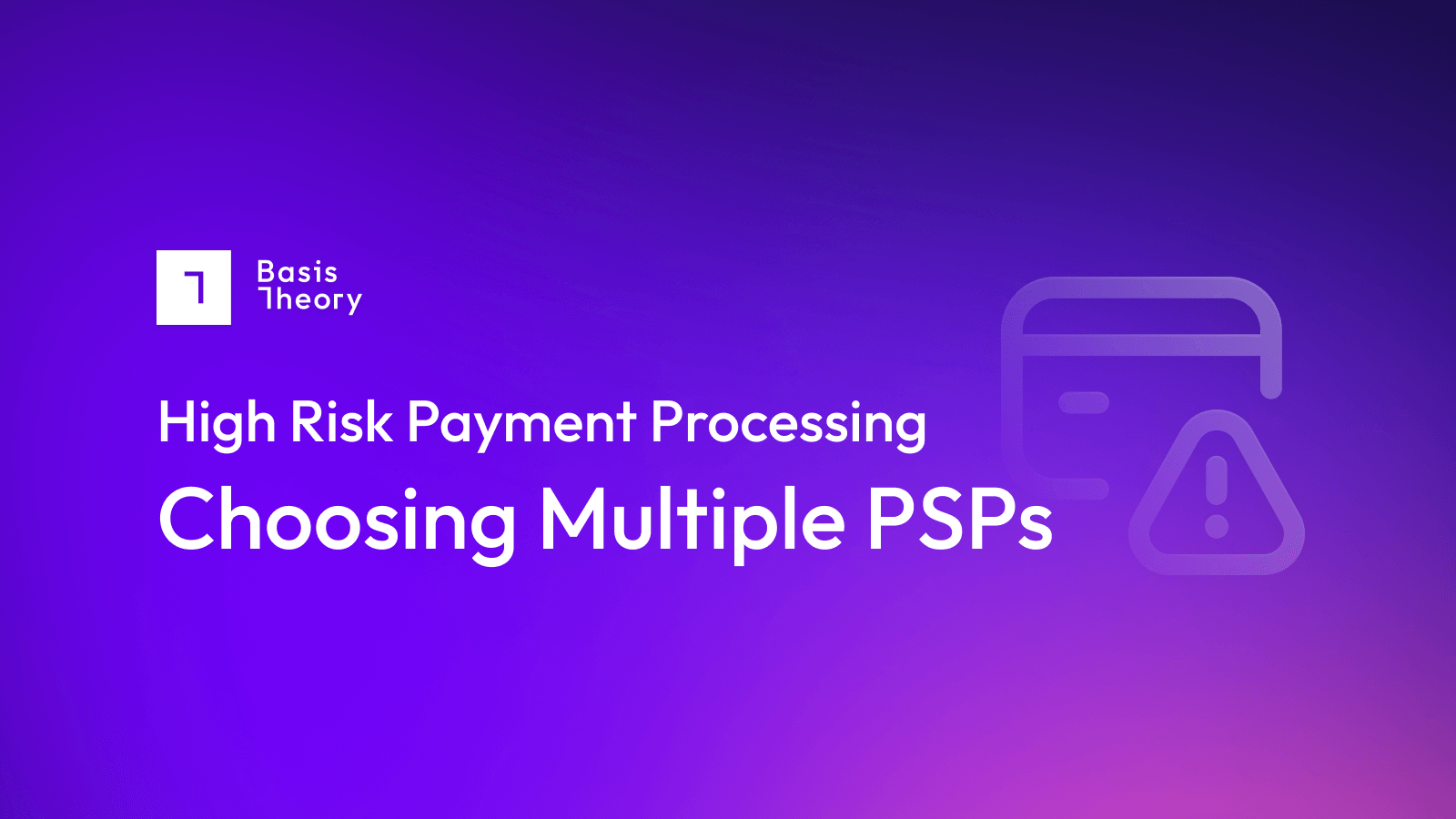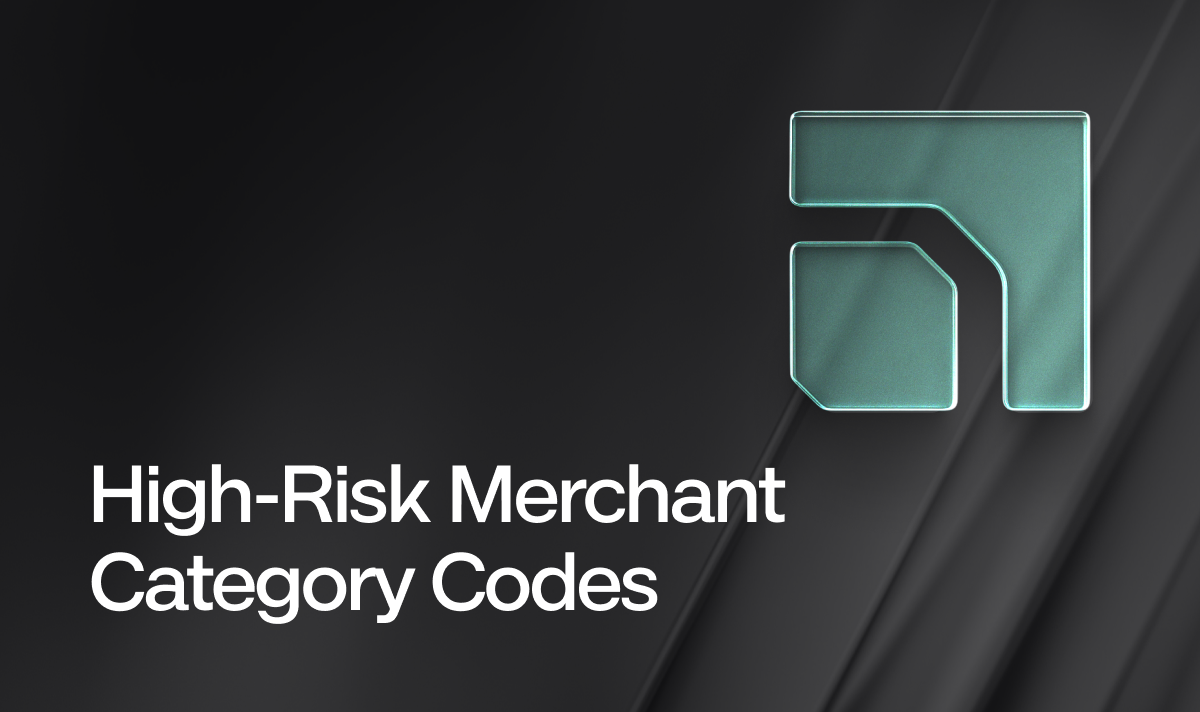High-Risk Payment Processing: Staying Operational with One PSP

As a high-risk merchant, you know that hedging your risks can make it easier for your business to remain operational. One important way to achieve this when using a single payment service provider (PSP) is to be extremely cautious and to choose only high-quality partners that understand the nature of your business.
In part three of the five-part series on high-risk payment processing we will cover what it takes for high-risk merchants to stay compliant, efficient, and operational while processing with only one PSP.
How to Stay Compliant and Operational with One PSP
There are various reasons why a merchant may want to partner with a single payment service provider to process payments. Whether it is timing, resource constraints, or desire to keep data in a single system, high-risk merchants of all sizes can remain operational and reduce risks while leveraging a single PSP if they choose the right partners.
Find a Good Partner in Your Payment Service Provider
The first - and, arguably most important - partnership a high-risk merchant can make is the one with the payment service provider that will process all their payments.
Broadly speaking, merchants have two types of PSPs they may choose from: an all-in-one PSP or a specialized PSP. Each route comes with its own benefits and downsides.
All-in-one PSPs like Stripe and WorldPay are often regarded as easy choices for merchants that want to begin processing quickly, but these solutions can be incredibly picky with the risks they allow on their platforms. With built-in risk and fraud services, these PSPs act as one-stop shops for most of a merchant’s payment needs and can help them maintain compliance. However, PSPs of this nature have strict (albeit at times vague) rules that could cause a merchant, especially a higher-risk merchant, to lose access to their payment processing services without warning.
On the other hand, more specialized PSPs like PaymentCloud or Soar Payments have a history of supporting higher-risk businesses and helping them succeed. A specialized PSP may not have nearly as many bells and whistles for merchants but will offer more flexibility for these merchants to choose the fraud and risk solutions that best suit their needs. For smaller merchants with fewer resources, piecemealing services in this way may become cumbersome and ultimately non-viable as an option.
When selecting any PSP, be sure to consider:
- How this partner operates with your designated merchant category code (MCC) and whether similar merchants transact successfully with them.
- The payment methods they offer and whether they meet your customers’ expectations.
- What makes this partner unique and a good fit for you, whether they offer fraud prevention, flexibility, performance optimization, global coverage, or reporting you require.
- The level and quality of support you need in a PSP.
While it may be difficult to know which route is the best option for your business, be sure to weigh your company’s risks, resources, and growth goals against the PSP options available to you. All-in-one PSPs are notoriously difficult to move away from and while they may provide a means for getting up-and-running quickly, they may not be the best partner long term.
Manage Disputes (Chargebacks)
One of the simplest (albeit not actually easy) ways to remain compliant and operational with both the card networks and any PSP is to keep dispute rates low.
While some disputes may be signs of fraudulent activity (more about this later on), legitimate disputes can occur due to lack of customer support, clarity, or trustworthiness in the brand.
A few ways a merchant can reduce the dispute rate include:
- Enhancing transparency and clarity: provide clear and concise communication with customers throughout the purchasing process. Make sure product descriptions are accurate and detailed, pricing is transparent, and terms and conditions are clear.
- Providing prompt customer service: Offer responsive customer support to address any inquiries or concerns quickly and effectively, and ensure that they come to resolution quickly.
- Establish clear return and refund policies: Clearly articulate return and refund policies in all communications with customers, and make it easy for customers to request and process returns.
- Educate customers about chargebacks: Inform customers about chargebacks and the potential consequences for all parties. Encourage customers to contact you directly with any concerns before initiating a chargeback.
- Continuously evaluate and improve: Regularly review and evaluate your fraud prevention and chargeback management strategies. Identify areas for improvement and make adjustments based on data, trends, and customer feedback.
Reducing legitimate chargebacks and keeping the chargeback rate low can signal to partners that even the riskiest of merchants are safe to do business with.
Work with Trusted Third-Party Partners
While using one PSP may simplify many things for you, this doesn’t mean that you shouldn’t also work with other partners to keep your high-risk business running. It is especially important when having only a single payment partner that your business has the tools in place to protect itself and remain operational should any major issues arise.
Consider working with third-party providers that specialize in key payments operation areas, such as fraud prevention and payment compliance: this will take difficult work off your plate while keeping your business in the clear.
Fraud Prevention and Management
While merchants could monitor fraudulent activity on their own, this task becomes increasingly cumbersome as processing volumes mount to thousands of transactions or more daily. Many solutions on the market today are especially good at using AI and sophisticated algorithms to:
- Monitor historical performance for trends that could signal attacks
- Identify and flag - and, sometimes, even prevent - suspicious activity in real-time
- Manage disputes as they come in and flag any alarming trends
While these solutions do come at a cost, many merchants consider these to be worthwhile expenses because fraudulent and errant disputes could mean the difference between a smooth running business and one that ceases to operate.
Companies like FraudLabs Pro, Kount, and Feedzai, to name a few, can be seamlessly integrated into a company’s payment stack.
Payment Security and Compliance
All-in-one payment processors usually offer a full suite of compliance tools that help merchants maintain secure operations and achieve PCI compliance. However, a merchant using a specialized PSP may have to manage most of this on its own, or select a third-party solution to assist them.
Third-party tokenization providers like Basis Theory can assist merchants that would like to secure their payments, achieve PCI compliance, and maintain ownership over their payments data. These solutions not only take away a significant portion of the burden to maintain compliance, but they also provide freedom in the form of network-agnostic tokens that growing merchants can use with any PSP, partner, or network.
High-Performing High-Risk Merchants
When working in a higher-risk environment, many merchants set their sights on what can keep them operational today. However, by choosing the correct platforms and partners, these merchants can not only survive today, they can also thrive and deliver top-notch customer services while protecting and optimizing their payment systems.
Continue Reading
In this five-part blog series, we cover in-depth details on high-risk merchants, including:
- The Rules of the Game
- How Are Merchants Shut Down?
- How to Stay Operational with 1 Payment Processor (this post)
- Working Effectively with Multiple PSPs
- High-Performing High-Risk Merchants: Best Practices
.png?width=365&height=122&name=BTLogo%20(1).png)



